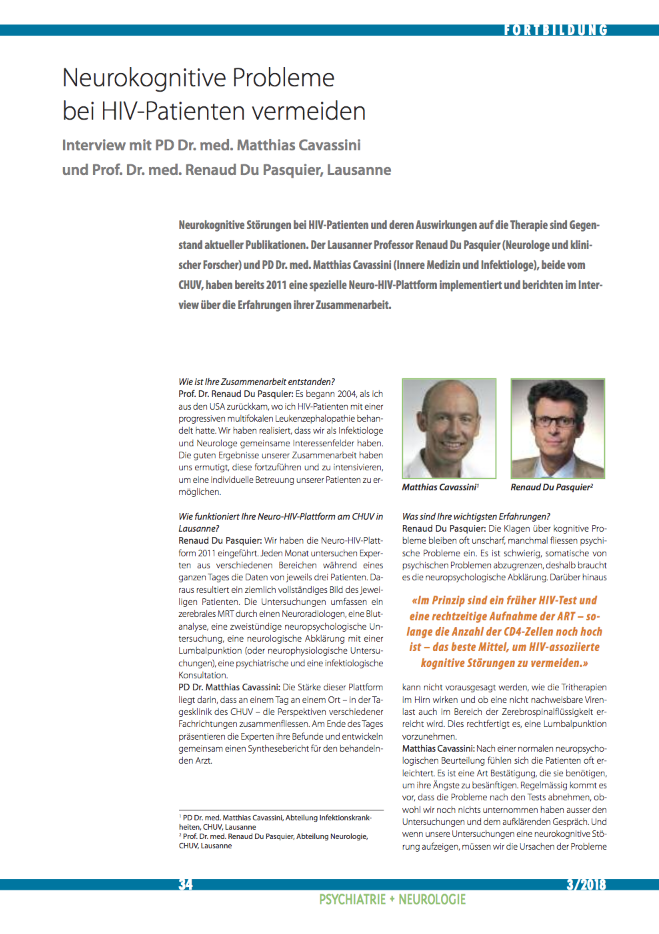Called Medical Writing by some, Doctor Communication or KOL Positioning by others: We support our customers and stakeholder in their communication activities. Doctors and researchers in particular are happy when they can devote their limited time to the actual research and study work or clinical tasks.
The example of a specialist interview with Professor Renaud Du Pasquier and Professor Matthias Cavassini from CHUV on neurocognitive disorders in HIV patients and their effects on therapy shows that a targeted communication strategy addresses various messages in a way that is appropriate for the recipient.
Patient-centred treatment
The discussion revolved around the neuro-HIV platform implemented at the CHUV in 2011. The two Key Opinion Leaders describe the structure of their interdisciplinary collaboration, which has now become a matter of course and has provided patients with great added value in the treatment of HIV infection.
Neuroprotective treatments for HIV
One of the results of the platform is that more importance is given to neurocognitive investigations in order to adapt the therapy if necessary. In order to avoid cognitive restrictions in HIV patients in the future, experts believe that neuroprotective drugs, which are still to be developed, are important. The findings from their work with HIV patients are also continuously flowing into other neurological fields such as Alzheimer’s, Parkinson’s or multiple sclerosis.
For years, Life Science Communication has been responsible for mandates in the fields of HIV/AIDS/Infectiology, Neurology, Dermatology and Oncology. The interview with Prof. Du Pasquier and Prof. Cavassini was published in the journal Psychiatrie + Neurologie 3/2018.
Click here to go to the online edition of the journal in german

